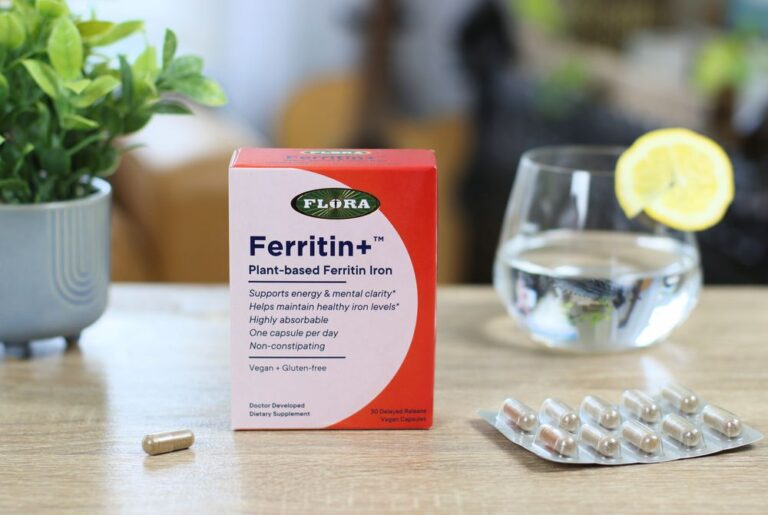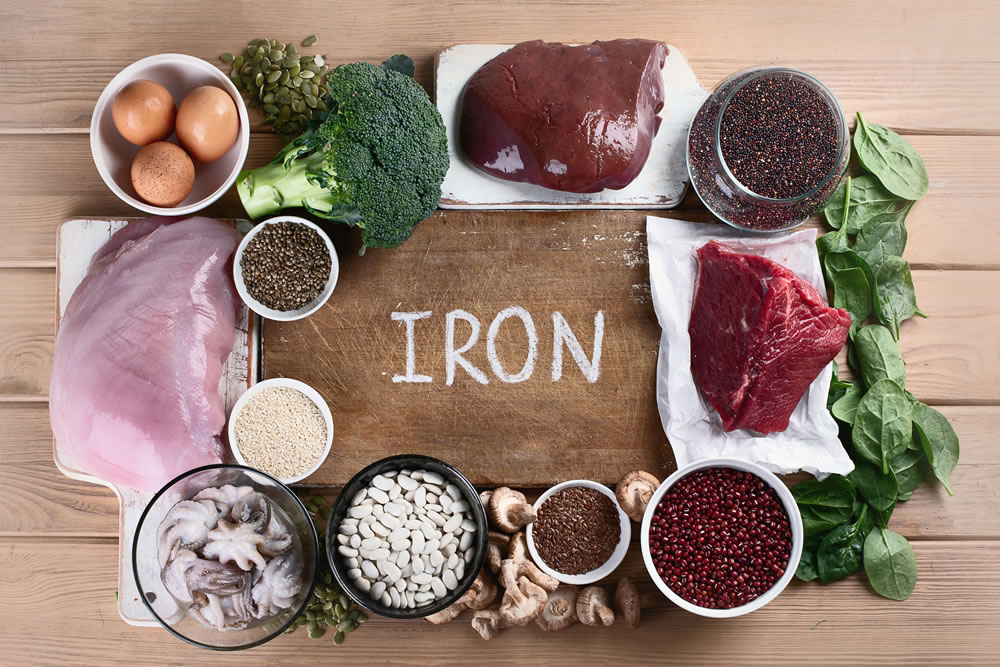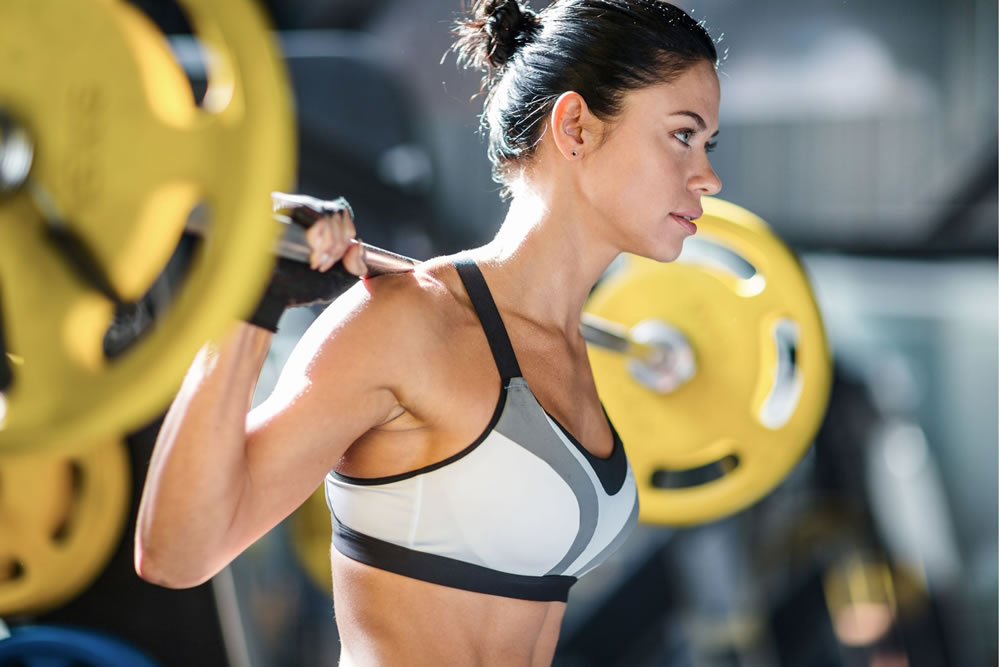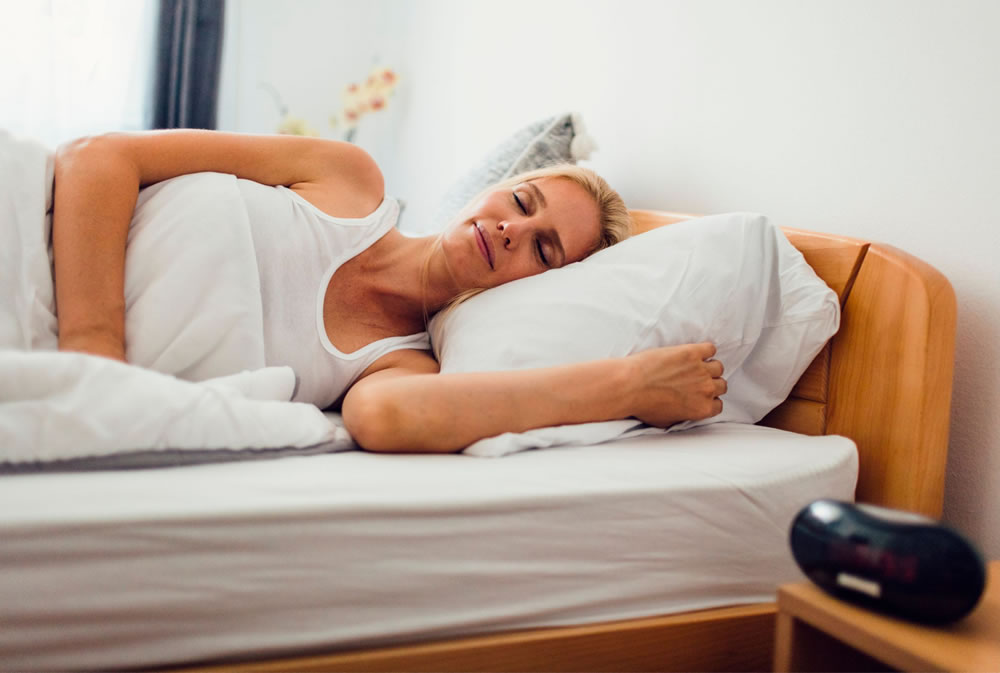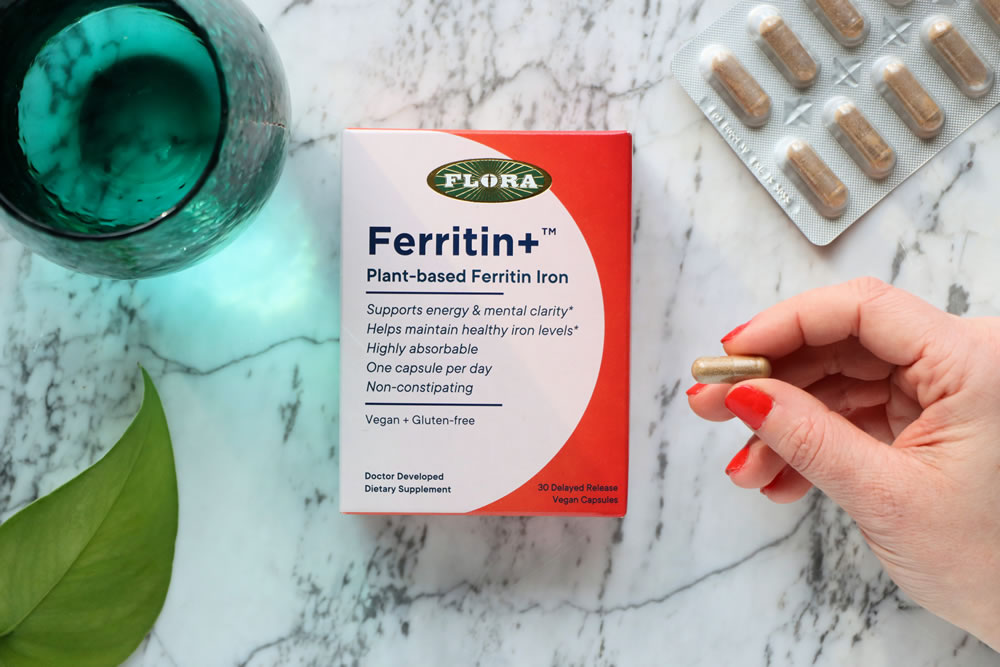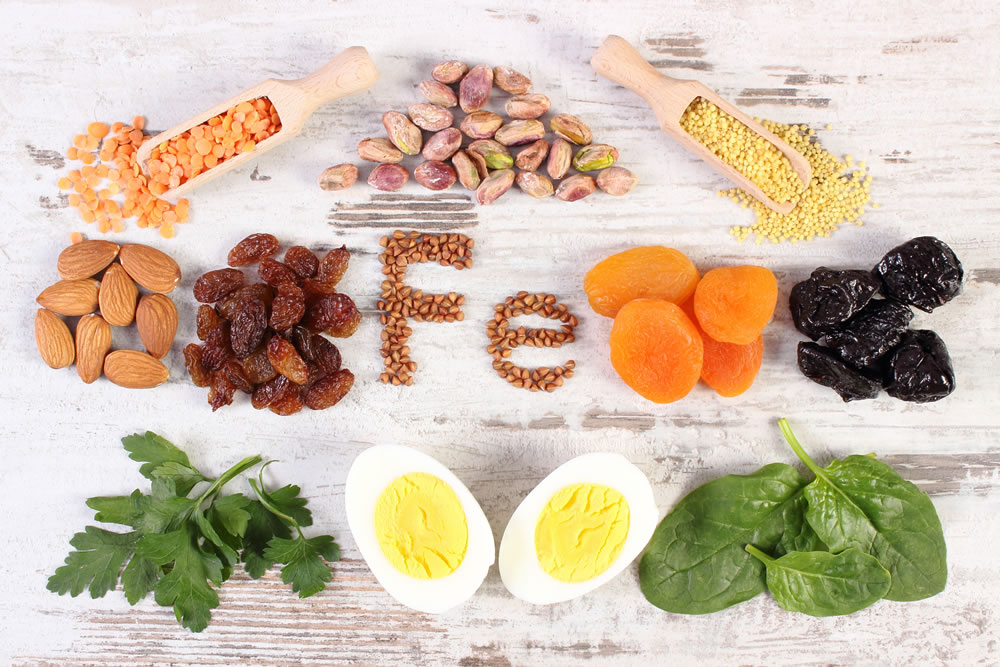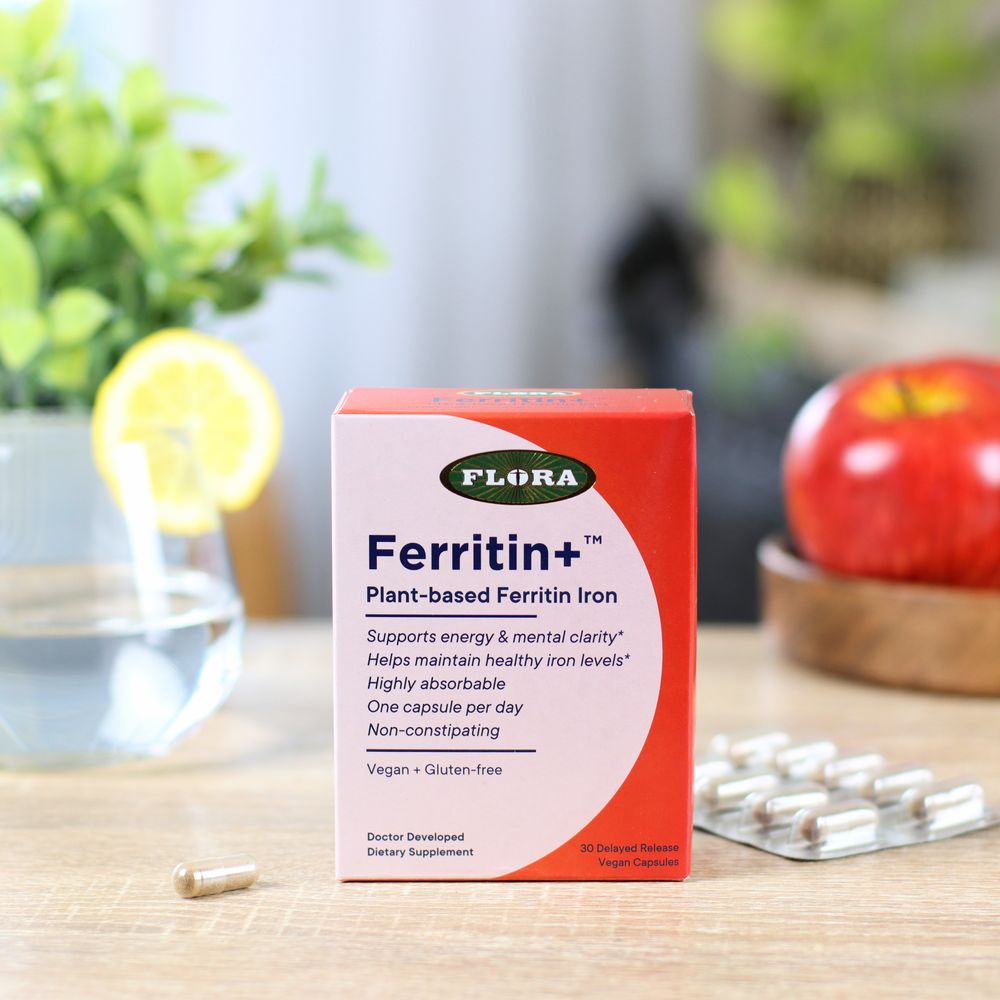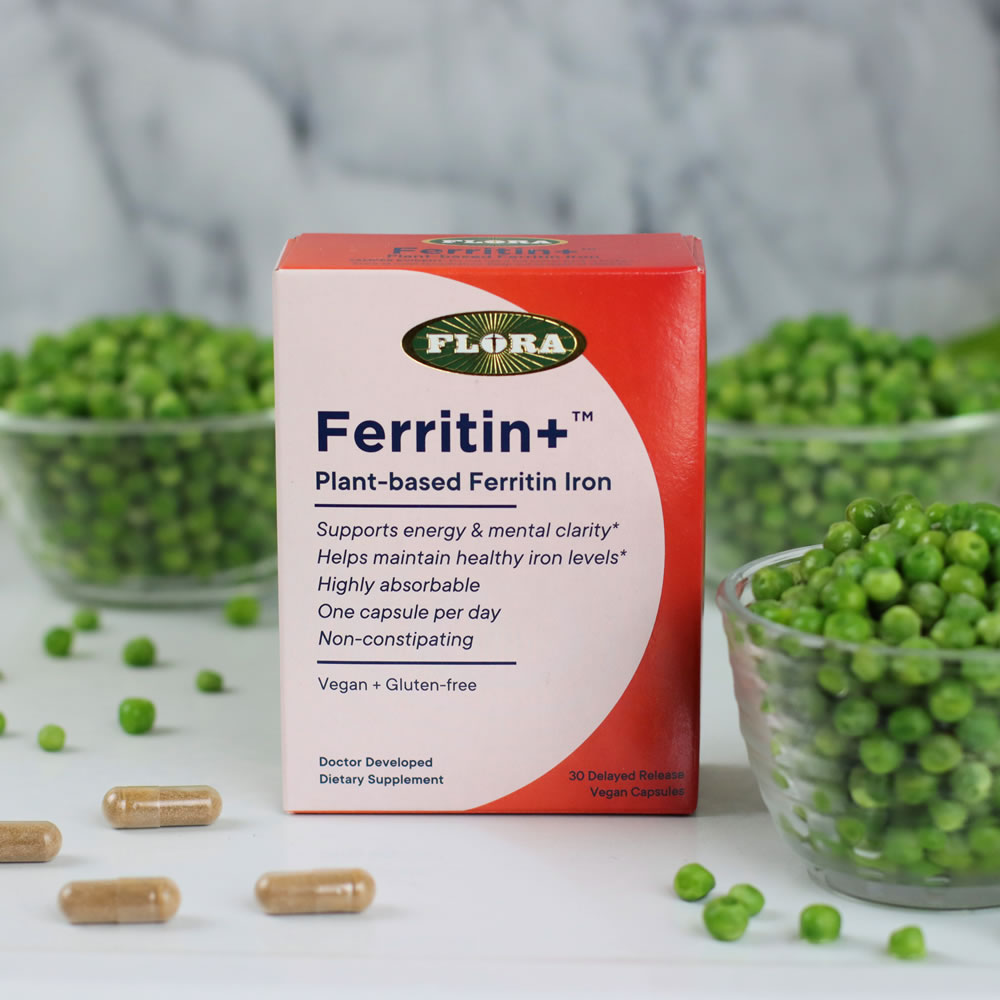Getting enough iron can provide us with a variety of benefits while preventing health concerns like low iron, fatigue, weakness, and more.
If you’re concerned about your health, you most likely make sure you get enough of the big vitamins and minerals like Vitamins A, C, D and calcium.
But there’s one nutrient in our diet we often overlook, even though it’s just as important for our health: Iron (Fe).
How Iron Keeps Us Healthy
The fourth most abundant metal on earth, it’s no wonder iron affects our health in a variety of ways. An essential mineral required by every cell, iron is a vital building block to hundreds of proteins and enzymes in the body.
Plus, it’s required for a variety of reactions that range from everything from oxygenating cells to energy production, gene regulation, cell repair, and DNA synthesis (1).
💡 Keep reading to learn about the health benefits of iron and how one breakthrough, plant-based, iron supplement called Ferritin+ from Flora can keep you feeling fantastic.
Here are the benefits of getting enough daily iron.
1. Iron Builds Healthy Red Blood Cells and Helps to Oxygenate the Body*
The function of our red blood cells (erythrocytes) is to carry oxygen from our lungs to the rest of our other tissues and cells. But they can only do that with the help of iron. Red blood cells contain a special iron-containing protein called hemoglobin. Oxygen binds directly to the iron molecules in hemoglobin, allowing it to be transported throughout the body where it’s used to convert food to energy inside cells.
About 70% of the body’s total iron is stored within our red blood cells. But when iron stores run low, so does our count of healthy oxygen shuffling red blood cells. This can lead to iron deficiency anemia, a condition that affects approximately 1-3 billion people worldwide [2]
2. Iron Gives Us Energy*
Iron allows oxygen to be transported to all the cells in our body. Our cells then use oxygen to create energy from the food we eat through the process of cellular respiration. If you don’t get enough iron because of a poor diet, absorption issues, or blood loss, it’s common to feel tired and weak.
3. Iron Supports Healthy Muscles*
Muscles need iron to stay healthy and where it’s stored is a protein called myoglobin.
Similar to hemoglobin, myoglobin is another iron-containing protein found only in muscles that work to keep them oxygenated. This supports the healthy production of energy in muscles so they can contract and you can take a walk down the beach or pump your own iron in the gym.
Without adequate iron in your system, muscles can become weak, while losing their tone and elasticity. [3]
4. Iron Promotes Healthy Immune Function*
Research has shown that both too little and too much iron can be associated with weakened immunity. (4)
Our immune cells including T-Cells and macrophages (engulf microorganisms and remove dead cells) require sufficient amounts of iron in order to eliminate infections, activate other immune system cells, and remove toxins from the body. [5, 6]
5. Iron Supports a Healthy Thyroid*
Your thyroid, a butterfly-shaped gland that sits at the base of your neck, is important for regulating a variety of metabolic functions in the body including body temperature, breathing, weight maintenance, energy, muscle strength, and heart rate.
Iron deficiency can trigger hypothyroidism, a disease where the thyroid can’t produce enough hormones to keep the body’s metabolic processes balanced. [7] Symptoms of hypothyroidism include fatigue, dry skin, sensitivity to cold, muscle cramps and weakness, weight gain, and more.
What’s interesting is that evidence has shown that hypothyroidism caused by factors other than iron deficiency can contribute to poor iron absorption by the body. [8]
6. Iron Supports Healthy Skin, Hair, and Nails*
Iron is required by the body to produce collagen, a fibrous structural protein found in all the body’s connective tissues, including our hair, tendons, cartilage, and bone.
Collagen is also an important component of skin, which gives it its elasticity and prevents it from sagging and wrinkling. While the body’s ability to make collagen declines once we hit our late 20s, keeping your iron stores up can help support collagen production as we age.* (9, 10)
Iron also helps promote strong nail growth and oxygenates cells around wound sites, which helps with cell turnover and tissue repair.*
7. Iron Can Help Boost Mood*
We need iron for the synthesis of neurotransmitters, chemical messengers used by the nervous system, and include serotonin (our happy hormone) as well as dopamine (our feel-good hormone) which are released by our brain cells (neurons). [11]
When your serotonin levels are healthy, you’ll feel happier, focused, and calmer, while a lack of serotonin can cause feelings of anxiety and depression.
8. Iron Supports Building Healthy Bones*
The cells within our bones are continually replacing old bone with new in a process called remodeling, which keeps them strong and healthy. And iron plays an important role in this process.
First, we need iron in order to make a type of collagen which lays the foundation for the structure of bones (Type 1 Collagen).
Iron is also required by certain enzymes to transform Vitamin D3 into its active form, which is not only important for building healthy bones but healthy immunity as well. [12]
9. Iron Promotes Healthy Sleep*
Getting a good night’s sleep is important to help the body rest and repair while reducing the effects of stress and supporting a healthy immune system.
Recent studies have shown a positive correlation between iron deficiency anemia and insomnia.[13] This means when your iron gets low enough, your sleep can suffer.
Low iron has also been associated with another sleep-shattering condition known as restless legs syndrome (RLS). RLS can give you an irresistible urge to move your legs around in order to stay comfortable, but it usually strikes at night, which can keep you from getting the rest you need. [14]
10. Iron Supports Healthy Brain and Cognitive Function*
Iron helps deliver oxygen to the brain to make the energy it requires for the growth and maintenance of nerve cells for a healthy nervous system.*
While iron is super important for our early brain development of language, motor, and learning skills, as adults, low levels of iron can trigger brain fog, making it hard to be productive. [15]
11. Iron Supports a Healthy Pregnancy*
Pregnant women need extra iron to help keep blood healthy and to meet the nutritional demands of an increased amount of blood flow in the body which can in some individuals double. [16] And more red blood cells mean a greater need for iron.
Iron is also needed for the health of their developing baby. If you’re pregnant, having healthy iron levels may also decrease the risk of premature birth and low birth weight.* [17]
Getting Enough Daily Iron Can Prevent Low Iron
Low iron can cause a variety of unpleasant symptoms, including:
- Fatigue
- Weakness
- Pale skin
- Shortness of breath
- Dizziness
- Brittle nails
- Dry skin
- Cold hands and feet
- Unusual cravings for ice or dirt [18]
Who is at Risk For Low Iron?
Most people can get enough iron from their diet. However, some groups of people are at risk of not getting enough:
Women who have heavy menstrual periods may lose significant amounts of blood each month may benefit from extra dietary iron intake.
Pregnant women need more iron because they are making extra blood for their needs as well as the needs of their developing babies.
Vegetarians and vegans may not get enough iron because they do not eat foods with easily absorbed forms of iron. If you eat mostly plant-based, consult with your health care provider to see if you should take an iron supplement like Ferritin+ from Flora. [19]
Seniors are at risk for iron deficiency. As we age, our body is less able to absorb the iron it needs.
Blood donors who give blood often should monitor their iron levels and may need more iron. Some medical experts recommend taking 18-38 mg of iron a day 6 months after donation. [20]
When to See a Doctor About Iron Deficiency
If you’re feeling more tired and weak than usual, or have one of the other symptoms mentioned above, consult with your doctor to rule out iron deficiency, it is important to speak with a doctor who will order blood tests to check your iron levels.
If you are low in iron, treatment for iron deficiency typically involves making sure you’re eating lots of iron-rich foods and taking an iron supplement to boost your body’s iron stores.
How Much Iron Do You Need Each Day?
How much iron you get each day depends on a few factors, including age and gender. These are general recommendations: [21]
Vegetarian/Vegan Adults: Should consume 18 mg/day of elemental dietary iron if they don’t eat meat or poultry.
Men (ages 19 through 50 years old): Should get 8 mg/day (11mg/day if you’re over age 50).
Women who Menstruate (ages 19 – 50 years old): Due to blood loss from menstruation women during childbearing years the RDA for dietary iron doubles to 18 mg per day.
Post-Menopausal Women: Need only 8 mg/day.
Pregnant Women: Should get 27 mg per day to support their own body’s needs and those of their developing baby.
How to Get Enough Iron in Your Diet
The best way to ensure that you’re getting enough iron is to eat a diet that includes plenty of iron-rich foods.
When you eat and then digest foods with iron it comes in two forms: heme and non-heme iron.
Heme iron: Is highly bioavailable and easy to absorb. Heme iron is obtained only from eating animal-based foods like meat, poultry, and fish. (22)
Non-heme iron: Non-heme iron is found in plant-based foods including fruits, vegetables, grains, nuts and seeds, but is also supplied by animal-based foods as well.
Absorption of non-heme iron is typically less bioavailable than heme iron. But a new supplement called Ferritin+ from Flora makes absorbing plant-based iron more efficient than ever before.
Here are some tips for getting more iron in your diet:
- Eat iron-rich meats, such as beef, beef liver and poultry.
- Eat seafood rich in seafood such as oysters, clams, and mussels.
- Good plant-based options include beans, lentils, tofu, nuts, and dried fruit and seeds.
- Eat iron-rich leafy greens like Lacinato kale (Dinosaur kale) and turnip greens. Greens like spinach and Swiss chard while high in iron are also high in oxalates – compounds that can bind iron and block absorption.
- Fortified foods such as cereals and bread are another way to get iron in your diet.
- Eat Vitamin C-rich foods like greens, citrus and strawberries to boost iron absorption.
- Cook with cast iron cookware.
- Take a gut-friendly supplement like Ferritin+
Ferritin+ is a Plant-Based High Absorbency Iron Supplement Ideal for Both Vegans and Meat Eaters
While there are a variety of different iron supplements to choose from, they don’t all work equally well.
Some iron supplements are hard to absorb or can’t help you with building up your iron stores in the long-term.
Others aren’t vegan or vegetarian friendly or can trigger digestive upset with side effects like abdominal cramping, constipation, and nausea.
Now, Flora is changing all the pitfalls of traditional iron supplements with its breakthrough, plant-based iron supplement called Ferritin+.
A slow-release formula, Ferritin+ is made with iron extracted from organic peas in the form of a protein called ferritin.
Different from plant-based iron sources, Ferritin+ is easily absorbed and vegan-friendly. And it won’t give you any of the uncomfortable side effects of the popular salt-based iron supplements.
One capsule of Ferritin+ can supply 111% of your RDI of iron per day.
Ferritin+ can also:
- Support energy & mental clarity*
- Prevent iron deficiency anemia and boost energy*
- Support the production of healthy red blood cells*
Plus it’s:
- Enteric-coated to survive stomach acid
- Gentle, safe and non-constipating
- Gluten-Free
- Vegan!
If you’re looking for a healthy plant-based way to boost your iron, Ferritin+ can be a gentle and effective way to get the iron your body needs (30).
Think you would benefit from a plant-based iron supplement?
➡ Visit Flora Health to give Ferritin + a try!
➡ 8 BEAUTY BENEFITS OF IRON FOR SKIN, HAIR, & NAILS
* These statements have not been evaluated by the Food and Drug Administration. These products are not intended to diagnose, treat, cure, or prevent any disease.
Better Living uses affiliate links. If you make a purchase through them, we may receive a small commission (for which we are deeply grateful) at no cost to you.

